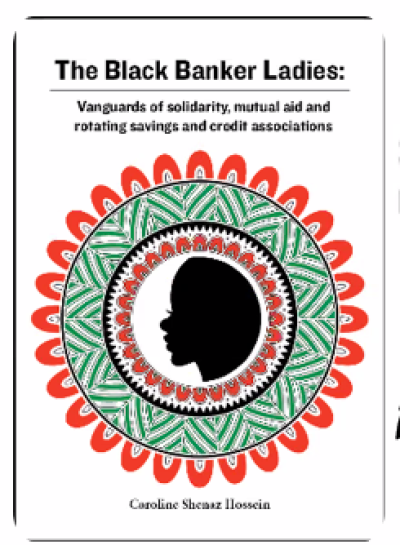Put banker ladies at the centre of community and economic development

One of the clear messages from Caroline Shenaz Hossein is to take the lived experience of black banker ladies seriously and to put them at the centre of community economic development efforts, as well as at the heart of the cooperative and credit union movement, and banking reform.
This message was part of the prestigious Big Thinking on the Hill lecture that was delivered today by Hossein, Associate Professor of Business and Society, York University, Canada; founder of the Diverse Solidarity Economies (DiSE) Collective; and member of the Community Economies Research Network.
Hossein worked for most of a decade in international development and was influenced by OIC International, a Philadelphia-based NGO led by African Americans and founded by the late Rev. Leon Sullivan, a civil rights activist.
For the past 14 years she has worked as an academic, researching economic development, financial exclusion and co-operative economies specifically for the African diaspora.
Her research has focussed on ROSCAs, rotating savings and credit associations that are found across the world and are known by various cultural names such as Ayuuto in Somalia, Partner in Jamaica, Chit in India, Sol in Haiti, Hui in China, Equub in Eritrea and Ethiopia, Tandas in Latin America, and Susu in Ghana (and the name used by Hossein’s great-grandmother Maude Gittens, a street food vendor and Susu banker lady who lived in Sangre Grande, Trinidad).
Hossein says “When people emigrate, they organize ROSCAs drawing from practices in their country of origin. The women who organize ROSCAs call themselves Banker Ladies. It’s a way to help each other financially, build social supports, kindle kindness and give people a place to belong.”
“These Banker Ladies and their members refuse to sit idly by waiting on handouts. They contribute to making our world a better place.”
Hossein argues that ROSCAs are a hidden form of co-operatives that have served Black and racialized people all over the world for centuries.
“One of Canada’s gifts to the world has been the co-operative movement that is proudly traced to the Desjardin network and the Antigonish movement, but it’s crucial to trace other traditions of co-operatives in Canada.”
“There is the tradition stemming from The Underground Railroad (itself a co-operative), and True Bands, a ROSCA system that the fugitive slaves—refugees—drew on when they finally made it to Canada. And there is the tradition brought by emigrants from all parts of the globe, the Banker Ladies.”
Hossein wants to see Banker Ladies and ROSCAs being valued and supported through a variety of mechanisms, including through a national and international ROSCAs network offering, among other things, training and support; by hiring Banker Ladies as community economic development experts; and by including ROSCAs as part of a national economic development strategy and reform agenda. Examples overseas that Hossein pointed to include Kudumbashree in Kerala, India.
Hossein’s lecture is available by clicking here (or can be accessed through http://www.ideas-idees.ca/events/big-thinking). Her 21-minute documentary, The Banker Ladies, is available online. Her publications, including books and newspaper articles are also available online.
Image: Caroline Shenaz Hossein
Jenny Cameron
